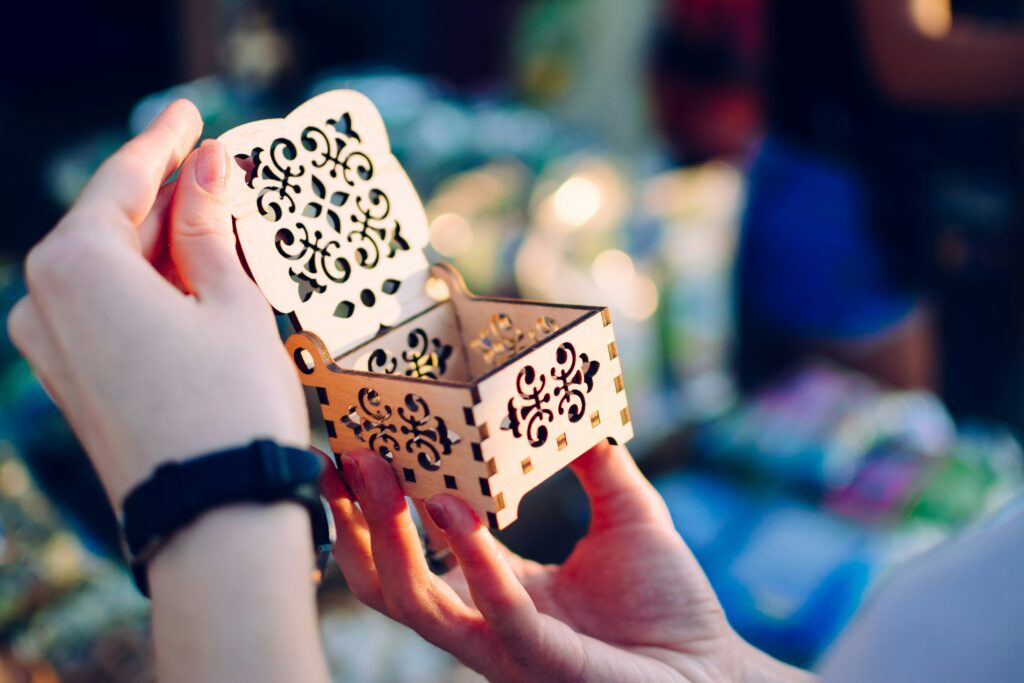
When I think of my travels, my mind sometimes drifts to the souvenirs tucked away in my closet. A colorful vase from Mexico? Sure, it looked great in the shop. But sitting on my shelf now, it feels heavy—not because of its weight, but because of the memories wrapped up in it. This is a common experience for many travelers. We come home with items that once excited us, only to find ourselves regretting the purchase.
In this post, we’ll talk about why we often regret travel souvenirs and the emotional and financial pitfalls that come with them. Understanding these issues can make your next trip not just memorable, but also a bit lighter on your wallet—and your soul.
The Allure of Souvenirs
Here’s the thing. When we travel, we’re swept up in the excitement. New sights, new experiences, and often, new shopping opportunities. It’s natural to want to take a piece of that moment home with us. But just because something pleases our eyes at the time doesn’t mean it will hold the same charm later.
Think about a lovely trinket from a market in Thailand. In that moment, it felt like a representation of the culture, the food, the sights. And then you get home, and it’s just another item collecting dust. That can lead to feelings of regret. “Why did I spend that much on something I don’t even like?”
The Emotional Impact of Regret
Sentimental Attachment
Many travelers buy souvenirs driven by nostalgia. We often think, “This will remind me of that incredible time.” But in reality, those items can start to feel more like burdens. Every time you dust that shelf, the memory might not be a happy one anymore.
It’s easy to get attached to items that reflect good times, but holding onto too many physical reminders can weigh you down emotionally. You might feel guilty about the money wasted, or regret how infrequently you see the item. That’s why it’s vital to question the lasting value of what you’re buying.
Financial Pitfalls
Money can be a tricky aspect of travel shopping. We often overspend, thinking that the value of the item justifies the price. A handmade blanket in Peru might cost more than you expected, but in the buying frenzy, we convince ourselves it’s worth every penny. The reality? That blanket may just end up as a throw on your couch instead of a cherished keepsake.
Here’s a fundamental tip: set a budget for souvenirs before you even leave home. This can help keep your purchases in check and your bank balance healthy. When you have specific limits, it’s easier to make wise choices.
Making Better Choices
Consider Experiences Over Items
Instead of filling your suitcase with physical items, think about experiences. A cooking class in Italy or a guided hike in Costa Rica can create memories that last a lifetime. These experiences are often far more enriching than a piece of pottery.
When deciding between a souvenir and an experience, ask yourself which one will bring you more joy in the long run. This way, you’ll have stories to share and memories tied to your travels rather than just clutter in your home.
Pick Meaningful Souvenirs
If you plan to buy souvenirs, go for items that really resonate with you or your experiences. Maybe it’s a piece of local art that speaks to you or something that reminds you of a special moment during your trip. Focus on the story behind the item instead of just its aesthetic value.
For example, a small jar of spices from a bustling market in Morocco can be much more meaningful if it symbolizes a cooking adventure you had, rather than just a decoration for your kitchen.
Dealing with Regret
Accept the Feelings
If you’ve already bought items you regret, know that you’re not alone. Accept those feelings instead of letting them consume you. It’s okay to feel regret—it’s part of learning. Use this moment to reflect on what you value in your travels.
Find a New Home for Unwanted Souvenirs
Consider donating or selling items you don’t want anymore. There are people who would appreciate what you’ve brought back, perhaps more than you did. This also gives your items a new narrative and allows you to let go of the regret.
This might even inspire you to think more carefully about any future purchases. If you realize you don’t enjoy buying souvenirs, that’s okay! Just focus on what you enjoy most about travel instead.
Takeaway
Travel shopping can be a rollercoaster of emotions. From the rush of finding the perfect souvenir to the regret that can creep in afterward, it’s important to be mindful. Think about the experiences and memories that truly matter. By prioritizing what you value, you can avoid emotional and financial pitfalls in the future.
So the next time you’re tempted to splurge on a souvenir, pause for a moment. Ask yourself, “Will this really make me happy later?” That question could save you from buyer’s remorse down the line.
Happy travels!
**Related Reading:** – [Related: How to Plan a Solo Trip on a Budget] – [Related: Top Destinations for First-Time Solo Travelers] **#SoloTravel #Regretting #Souvenirs #Understanding #Emotional #Financial #Pitfalls #Travel #Shopping**
